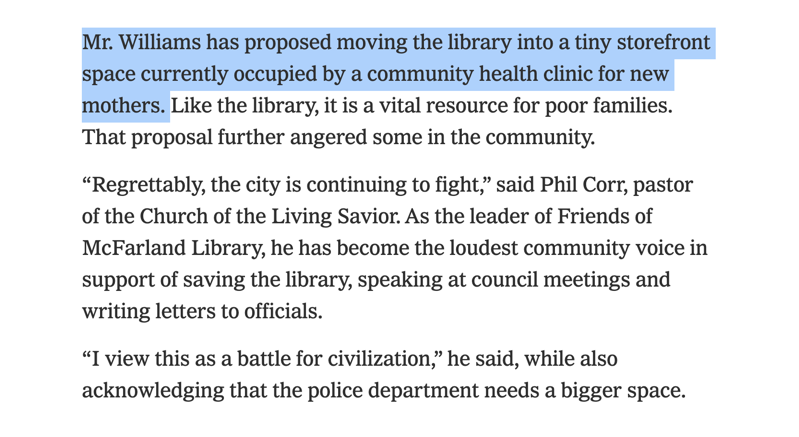In this article about a Central Valley police chief’s breathtaking scheme to get rid of the town’s library and instead fill the building with cops, check this passage:

Ah yes, books, children, young mothers—all expendable, all less important than cops.
I read this whole article with my jaw hanging open. Just an incredible condensation of the problem of police nationwide, condensed into one little nightmare.
I do wish the New York Times had pushed back more against the police chief’s framing. At the beginning of the article, they paraphrase him:
His argument: Crime is exploding, the city is growing, the tax base is tight.
Only right near the end of the article do we get anything resembling context, which suggests something much closer to a flat line:
All the while, gang violence has been a growing issue. The city has seen three homicides so far this year — the same number as last year — and all were gang-related, Mr. Williams said. In October, after a series of shootings, including a drive-by in nearby Delano, several McFarland school sporting events were canceled.
That’s sad, especially for the actual people impacted. But is the line really going up, as suggested at the beginning of the article? Are more cops really going to resolve this? The article doesn’t investigate these foundational premises of its reporting.
Even without some necessary context, the story is wild. It reminds me of the bizarre practice of “asset foreiture,” where police have free reign to claim the possessions of people arrested for certain crimes—regardless of whether or not they are eventually convicted.
The cops want that big, airy library. Why not take it? Why spare a thought for the kids studying in it after school, waiting for their farmworker parents? If anything, they’re just going to become criminals. Right?